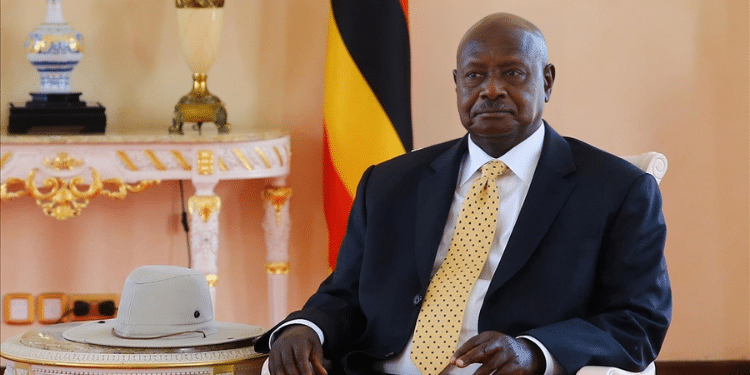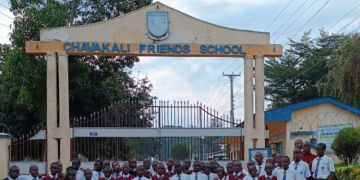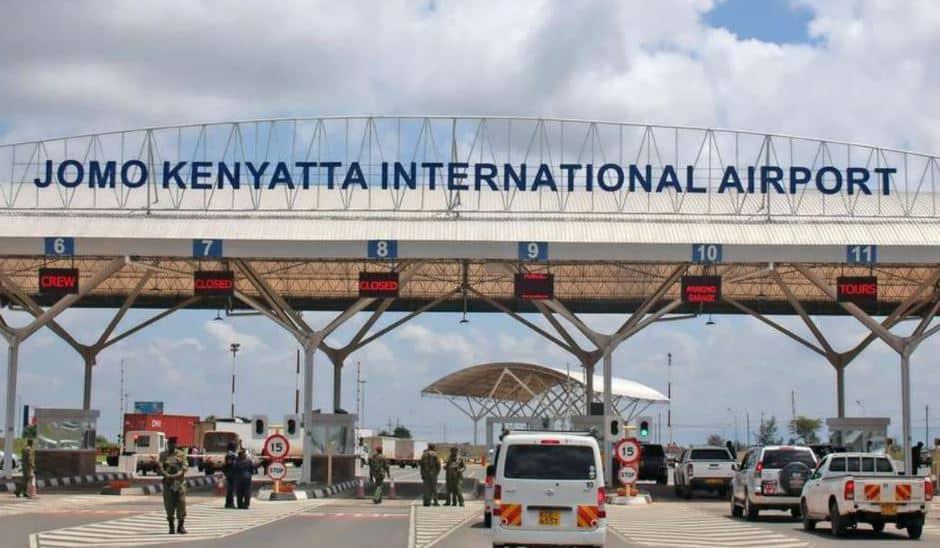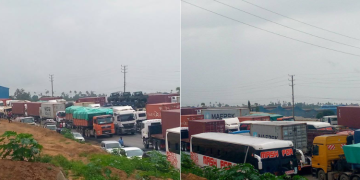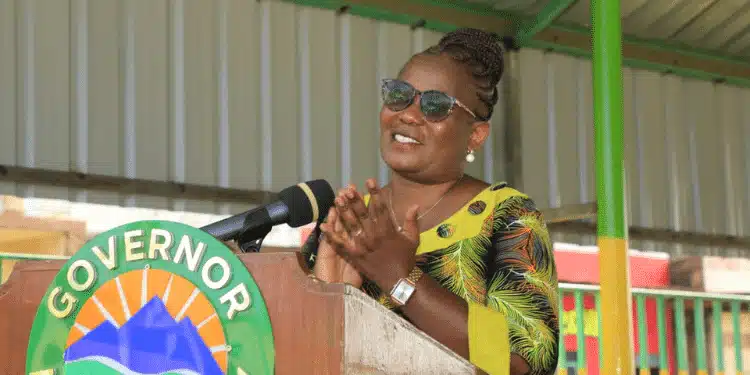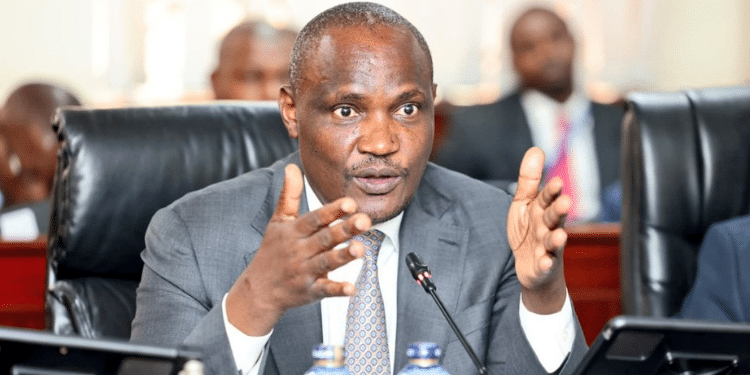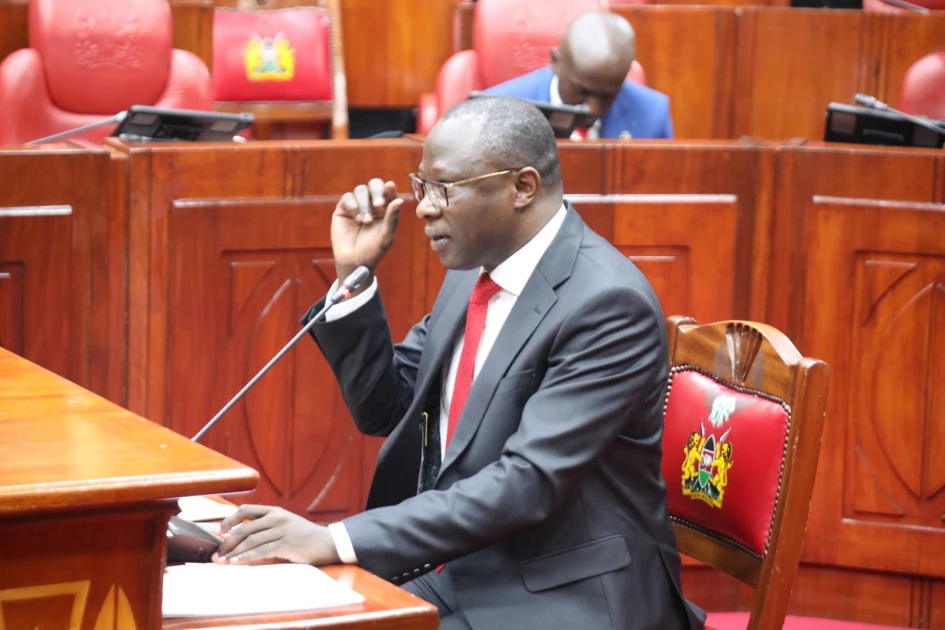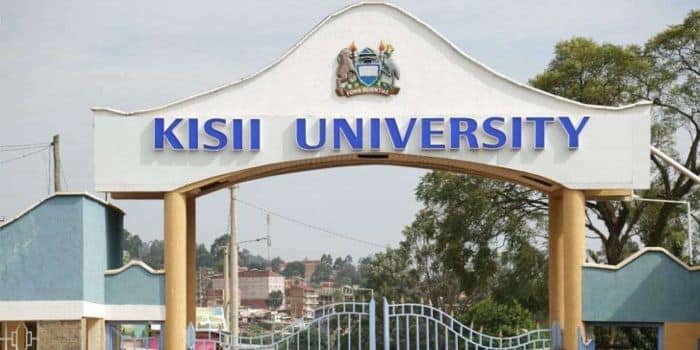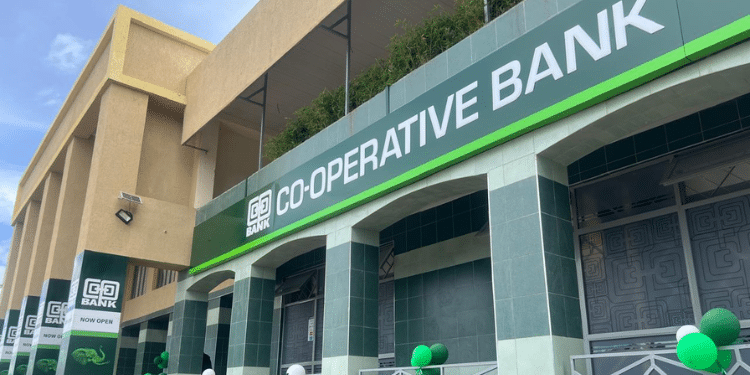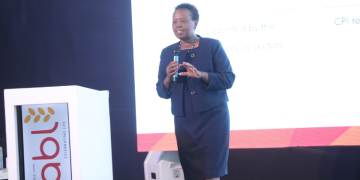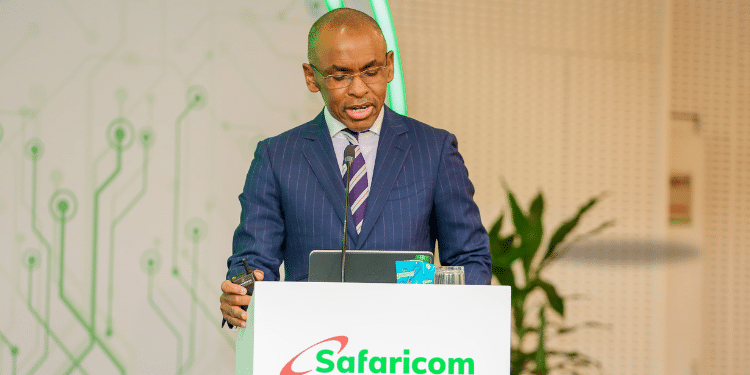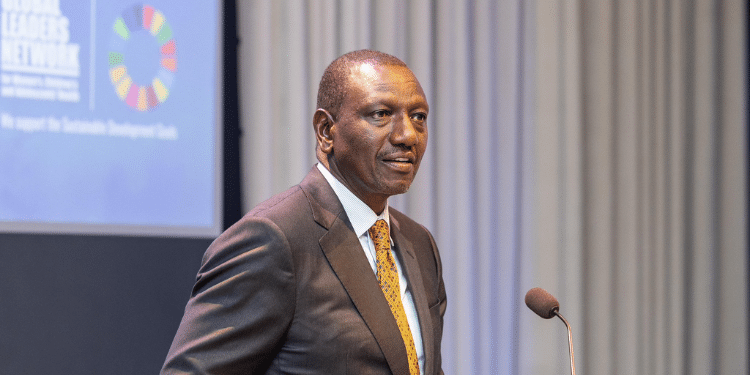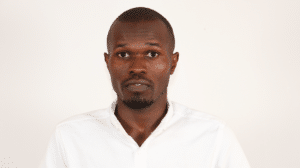President William Ruto on Thursday, September 26, addressed leaders and delegates at the 79th session of the United Nations General Assembly in New York.
I congratulate you, Ambassador Philemon Yang, on your well-deserved election as President of this Session of the General Assembly.
Here’s his full speech.
“Mr President, I welcome the choice of your theme, “Unity in diversity for the advancement of peace, sustainable development, and human dignity for everyone everywhere”, which resonates with the core principles of the 2030 Agenda and aligns closely with the core values and mission of the United Nations. Excellencies,
The world is at a challenging moment and in a most precarious international security dispensation. The promise of the United Nations Charter to save succeeding generations from the scourge of war has been profoundly shaken. From land to sea and the air to outer space, global peace, security, and stability are increasingly under threat. Conflicts and tensions pervade every frontier, undermining the collective security that international cooperation seeks to uphold. Cases of polarizing narratives, factionalism, social upheavals, organized crime, wars and stockpiling of Weapons of Mass Destruction are at an all-time high.
Great power rivalry is intensifying, provoking regional competition, and inducing geopolitical and geo-economic realignments and tensions. The subtle nuances of them versus us have produced negative coalitions, wars, and tensions, as well as eroded trust and confidence in the global multilateral system.
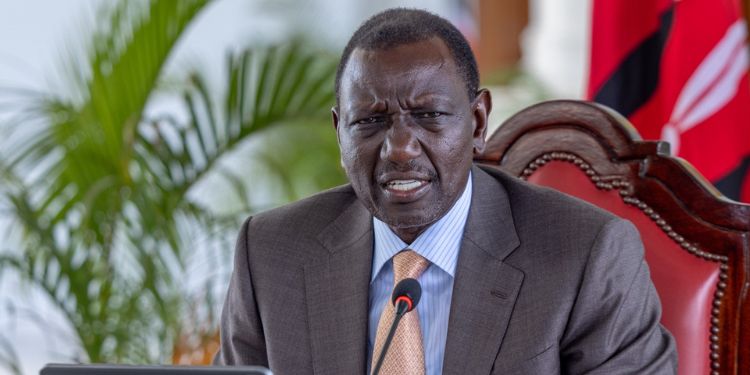
From Gaza to Darfur, Ukraine, Yemen, Eastern Democratic Republic of Congo, the Sudan, the Sahel region and the criminality in Haiti, conflict is inflicting a trail of destruction of life and livelihoods in historic proportions. These conflicts have become battlegrounds for armed factions, external interventions, and proxy wars, resulting in unprecedented anarchic situations and long-lasting negative repercussions on global stability and economic development.
The world cannot realise durable peace, security and shared prosperity when emphasis is being put on what divides us rather than what brings us together. We must, therefore, promote approaches that support positive competition for all.
The perilous security landscape is further complicated by emerging threats stemming from human advancements. Cybersecurity threats and sophisticated cyberattacks on critical infrastructure pose significant risks to national security and global stability.
Furthermore, the proliferation of advanced technologies, such as artificial intelligence in the military domain and autonomous weapons systems, has introduced new challenges for arms control and international regulations.
Regrettably, the world’s most powerful states have increasingly chosen unilateralism and militarisation over dialogue and diplomacy. As a consequence, the capacity of our multilateral institutions to maintain and enforce peace, even in national crises with significant regional impacts, is severely undermined. Even worse, a resurgence of a nuclear arms race, buoyed by the intensifying geopolitical rivalries and tensions, has made the possibility of catastrophic nuclear warfare a real possibility. Our vision of a world free from nuclear weapons and other weapons of mass destruction is dying incrementally.
We must not sit back and leave the future of upcoming generations to fate. We must intentionally rise to the occasion to meet the challenges of our time by reaffirming the core values of the UN Charter. We need to muster political will and collectively reinforce our diplomatic efforts to confront the security threats through comprehensive, multipronged and context-specific approaches. Excellencies, Kenya’s commitment to international peace and security is unwavering. We continue investing in efforts that promote stability and harmony both within our region and beyond.
We are committed to continuing to mediate, facilitate, and support peace initiatives and processes in our region, contributing to regional peace operations and UN peacekeeping missions. Through our participation in the African Union Transition Mission in Somalia (ATMIS), we have stood side-byside with our sisterly neighbour, Somalia, in their fight against Al Shabaab. We are proud that Somalia will soon take up a seat as a non-permanent member of the Security Council, underscoring the tremendous progress achieved in consolidating peace and stability in the country.
The UN must, however, continue to support Somalia in forging an agreement on post-2024 security support.
Kenya welcomes the adoption of the Security Council resolution 2719, establishing a framework for financing AU peace support operations through UN Assessed Contributions, thereby enhancing our collective peacekeeping efforts. Well-funded AU Peace Operations is not only an African priority but a global good, considering the complexity and interconnected nature of emerging threats to international peace and security.
Earlier this year, and at the request of the leadership of South Sudan, I launched the all-inclusive Tumaini Initiative, bringing together the warring parties and the political leadership of South Sudan to address the root causes of the protracted conflict. I commend the leadership of South Sudan and all the participating parties for their commitment to the peace process. I also thank all regional and international partners for their unwavering support, both political and financial, for the South Sudan Tumaini initiative.
At the last General Assembly, I announced Kenya’s readiness to lead a Multinational Security Support Mission (MSS) to Haiti at the Haitian government’s request. Following the Security Council’s authorisation under resolution 2699, Kenya has deployed 382 specially trained police officers.
Also Read: Ruto Receives Statesman of the Year Award in New York
Just a few days ago, I had the opportunity to visit Haiti, witness the work of our officers in the field, and observe their remarkable progress. Our support for the Haitian National Police has significantly advanced the pacification of cities and towns, protected critical infrastructure, and relieved many communities previously held captive by criminal gangs. I also commend Haiti’s political leadership for forging an agreement and a promising roadmap towards free, fair, and democratic elections.
We are deeply grateful for the financial and logistical support from the U.S., Canada and other member states that are shouldering the burden. This has been critical to the MSS deployment thus far.
However, Kenya and other Caribbean and African countries are ready to deploy but are hindered by insufficient equipment and funding. I appeal to all member states to stand in solidarity with the people of Haiti by providing necessary support, either directly to MSS-contributing countries or through the UN Trust Fund. I must emphasise, however, that Kenya will deploy the additional contingent towards attaining the target of all 2500 police officers by January next year.
The progress so far made in Haiti demonstrates that what was once deemed mission impossible is indeed a present and undeniable reality. Mr. President, 16. We must candidly acknowledge that international cooperation, in its current form, has clear limitations.
It is constrained by entrenched systems and structures that prevent effective action and meaningful progress. Since the last General Assembly, the global situation has deteriorated across multiple fronts; conflicts have deepened, economic disparities have widened, and the climate crisis has intensified.
To address these challenges, we must rethink and reform global collaboration mechanisms, making them more responsive, adaptable, and impactful. 17. The existing international security architecture, represented by the UN Security Council, continues to hamper efforts to maintain international peace and security.
The Council is dysfunctional, undemocratic, non-inclusive, unaccountable, autocratic, and opaque. An institution that excludes 54 African countries, representing 1.4 billion people, while allowing one nation to veto the decisions of the remaining 193 member states is unacceptable. We must urgently seek to make the Security Council truly representative, inclusive, transparent, effective, and accountable.
We in Africa are not advocating for reform and collective action solely at the UN. In fact, we are also in the process of comprehensively reforming the AU to become a fit-for-purpose institution that can effectively represent African nations globally and deliver prosperity
Excellencies, 19. Peace and development are inseparable pillars; one cannot flourish without the other. Yet, the 2024 Sustainable Development Goals Report paints a bleak picture.
Only 17% of targets are on track; nearly half show minimal or moderate progress, and over one-third have stalled or regressed. The COVID-19 pandemic, escalating conflicts, geopolitical tensions, and climate change have severely impacted progress towards the SDGs and Paris Agreement goals.
Inadequate and unsustainable means of implementation, particularly in financing, technical support, and capacity building, continue to obstruct our efforts to realize the 2030 Agenda.
Biased methodologies employed by credit rating agencies further disadvantage African countries, making it more difficult to access affordable financing from international capital markets.
Additionally, unilateral economic, financial, and trade measures not only impede the full achievement of economic and social development but also undermine the principles of international cooperation, mutual respect, and sovereignty.
Let us pause and reflect on the true significance of this predicament. Many countries in the Global South are forced to choose between buying medicine and hospital equipment or paying debt, between buying textbooks or paying debt, and between hiring teachers or paying debt, and I can go on and on.
This is not an abstract illustration detached from daily reality but the normal experience of billions of ordinary people. One must wonder what goes on in the minds of those who prioritise economic returns over people. What happened to humanity?
Addressing these deep-rooted challenges requires transformative changes to build a more equitable and resilient global framework. We have outlined many of these solutions in the Pact for the Future, demonstrating our clear understanding of what needs to be done. However, we have yet to muster the political will necessary to turn these commitments into action.
Excellencies, It is a fundamental principle of development that no nation can achieve lasting prosperity if its neighbours remain impoverished. Our economies are interconnected, and the well-being of one directly impacts the others. We must ensure that developing countries have the necessary foundations to claim their rightful place in the 21st-century global economy.
This is not just a moral and fairness imperative; it is a strategic necessity to address systemic challenges such as migration, labour market disparities, climate change, and global security.
Strengthening these foundations requires reforming the international financial architecture. Facilitating debt relief, concessional—long-term—at scale financing, grants, and de risking lending instruments is essential to increasing investment to develop vital infrastructure and expand critical sectors.
Consider Africa’s immense untapped potential in clean energy resources. Harnessing this potential is crucial not only for the continent’s economic growth and social resilience but also for global priorities like accelerating the energy transition, combating climate change, and diversifying supply chains.
Energy-hungry industries, such as data centres, mineral processing and manufacturing, are seeking clean and affordable sources, which Africa can provide in abundance. Yet, out of the 500 GW of renewable energy added to the global mix in 2023, Africa accounted for less than 3 GW.
How is this possible, given the continent’s vast natural resources, skilled workforce, and massive energy needs? We cannot allow Africa to be left behind once again. Affordable financing is essential, but so are transformative policies that include fair trade practices, market access, inclusive international tax cooperation, technology transfer, and capacity building.
This is why, at COP 28, we launched the Africa Green Industrialisation Initiative, aimed at unlocking investments for the continent’s immense opportunities.
This pan-African initiative promotes large-scale, high-impact, and bankable green industrial and infrastructure projects. Next month, we will host an investment forum for the Accelerated Partnerships for Renewals in Africa to attract investments for the untapped potential in solar, wind, geothermal, and hydropower.
Globally, we also need to improve the tools we already have. The SDG Stimulus Fund, initiated by the Secretary-General in 2023, requires our joint support to succeed, including from multilateral development banks. Similarly, replenishing the International Development Association (IDA) is essential to provide concessional loans to the world’s poorest countries.
Earlier this year, I hosted the IDA 21 replenishment summit in Nairobi, where African leadership reaffirmed the critical importance of IDA for developing countries and called for an ambitious replenishment of $120 billion.

Our collective efforts must include trust and accountability to ensure that we fulfill all our promises and commitments.
Additionally, we launched the Africa Club, an alliance of African multilateral financial institutions to strengthen and support Africa’s position in the global financial architecture.
This body will serve as a powerful negotiator on behalf of the continent, coordinate with global financial institutions, and leverage African countries’ balance sheets to increase investment and create jobs.
We believe that African institutions, such as the Afrexim Bank, Trade and Development Bank, and Africa Finance Corporation, among others, understand the continent even better.
As part of the reform of the international financial architecture, we must not only reform the multilateral institutions but also support and stop bias against these African institutions.
Excellencies, Ladies and Gentlemen, 30. Climate change remains one of the greatest challenges of our time. Biodiversity loss and pollution have created environmental crises that upend lives, reverse progress in poverty reduction, and strain ecosystems to their breaking point. Extreme weather conditions continue to hinder the development aspirations of many countries, especially in Africa, where severe climate-related hazards are becoming more frequent and intense.
In 2022, over 110 million people in Africa were directly affected by climate-related disasters, resulting in more than $8.5 billion in economic damages. According to the Emergency Event Database, there were approximately 5,000 fatalities, though the true toll is likely higher due to under-reporting.
We are at a crossroads, and the path to correcting the climate course is clear. COP29, to be held this November in Baku, Azerbaijan, presents a critical milestone in ensuring that the solutions we implement are rooted in fairness and opportunity for all.
However, the new climate finance goal expected at COP29 faces significant hurdles as deep disagreements persist over who should contribute and how much funding is needed.
Without swift resolution, these divisions risk derailing our collective progress on climate action, just as the global situation becomes increasingly urgent.
Let me be clear: political posturing and inaction will neither protect the vulnerable from the consequences of a runaway climate crisis nor save our civilization from ecosystem collapse. It is, therefore, critical that all nations step forward to meet this moment with ambition and responsibility.
As we confront the escalating impacts of climate change, we must also recognise the interconnected environmental challenges we face, such as plastic pollution, which continues to wreak havoc on ecosystems and threaten global sustainability.
It is imperative that we adopt a robust global plastics treaty during the fifth round of negotiations in Busan, in the Republic of Korea, this November. Kenya fully supports an ambitious outcome and the African proposal to establish the treaty secretariat in Nairobi, thereby reinforcing UNEP’s role.

It is indeed unfortunate and regrettable that UNEP is the only body where secretariats of conventions created under it are increasingly being carved away and located elsewhere. UNEP, being one of only two UN headquarters in the global south, must not be cannibalized for whatever purpose or reason.
Mr. President, as the host country for UNEP and UN-Habitat, I take this opportunity to thank the Assembly for approving the upgrade of the infrastructure at the United Nations Office in Nairobi (UNON), the largest UN campus in the world. This project includes the construction of new office spaces and the design of ultra-modern conference facilities
These developments mark a significant milestone towards enhancing the quality and accessibility of the Secretariat’s services to Member States. Not only will they serve current needs, but they will also strengthen the future success of multilateralism.
We look forward to the Assembly’s continued support as construction begins in 2025. It will be critical to ensure that UNON receives sustainable and predictable resources to ensure the timely completion of this upgrade.
Kenya will continue to play its part in ensuring that UNON fulfills its mandate. Accordingly, the government of Kenya has undertaken extensive improvements and expansion of physical infrastructure around the complex and will continue working towards making Nairobi a regional and humanitarian hub for the United Nations.
Mr. President, excellencies, as we reflect on the theme of this session, the call for unity in diversity in the pursuit of peace, development, and human dignity, it is evident that we must re-imagine international cooperation to align with the complex realities of the 21st century.
Our actions must reflect our ambition and commitment to a world where progress is measured not just by economic growth but by the well-being, rights, and dignity of every person.
The challenges we face, from climate crises to economic inequality, demand a bold rethinking of how we work together, grounded in mutual respect and shared responsibility.
The achievement of the Sustainable Development Goals cannot be reserved for a privileged few; it must be a shared success that uplifts all nations, transcending borders and disparities. Our collective efforts to combat climate change must be rooted in fairness and equity, ensuring that no nation or community bears a disproportionate burden.
This is our shared journey, and we must have a say in the choices we make. We must move beyond outdated paradigms of power and influence to create a system of international cooperation that reflects the aspirations and dignity of every human being.
We must embrace a new vision of global solidarity, one that upholds the principles of equity and inclusivity.
It is within our power to build a world that embodies the true spirit of the United Nations: a world where every voice is heard, every life is valued, and global progress is shared by all.
This is the cooperation our people expect, our future demands, and it is the commitment we must deliver.”
Follow our WhatsApp Channel for real-time news updates:

